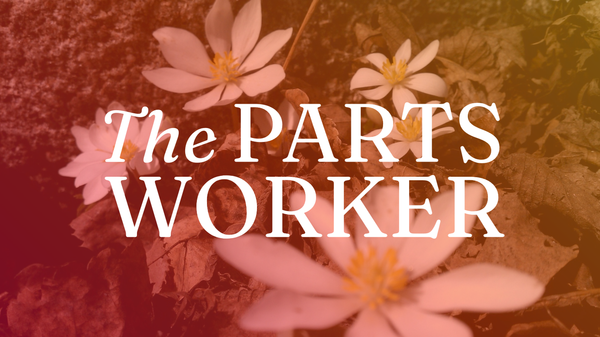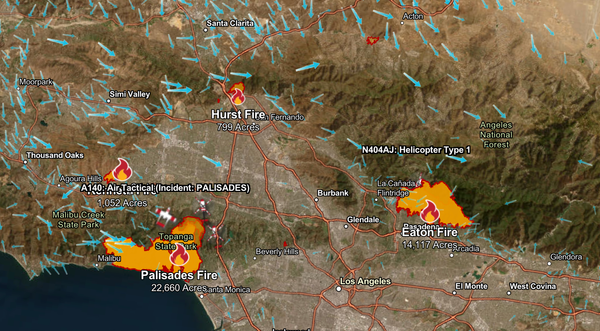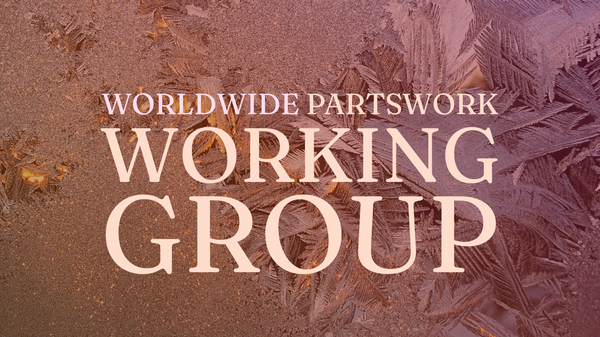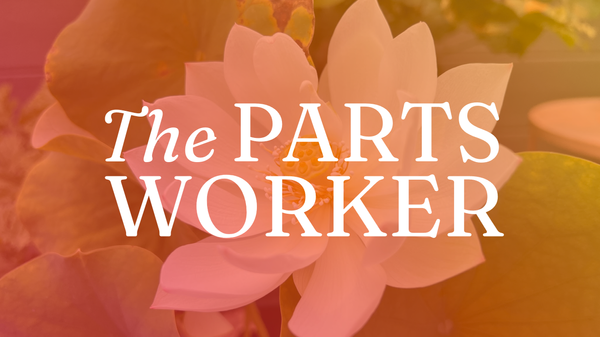The Partsworker No. 1
Welcome to The Partsworker, a newsletter for all who explore human multiplicity for healing and liberation. In this edition: A report from the Unconference | Building a directory of partsworkers | Free peer-to-peer partswork + other resources
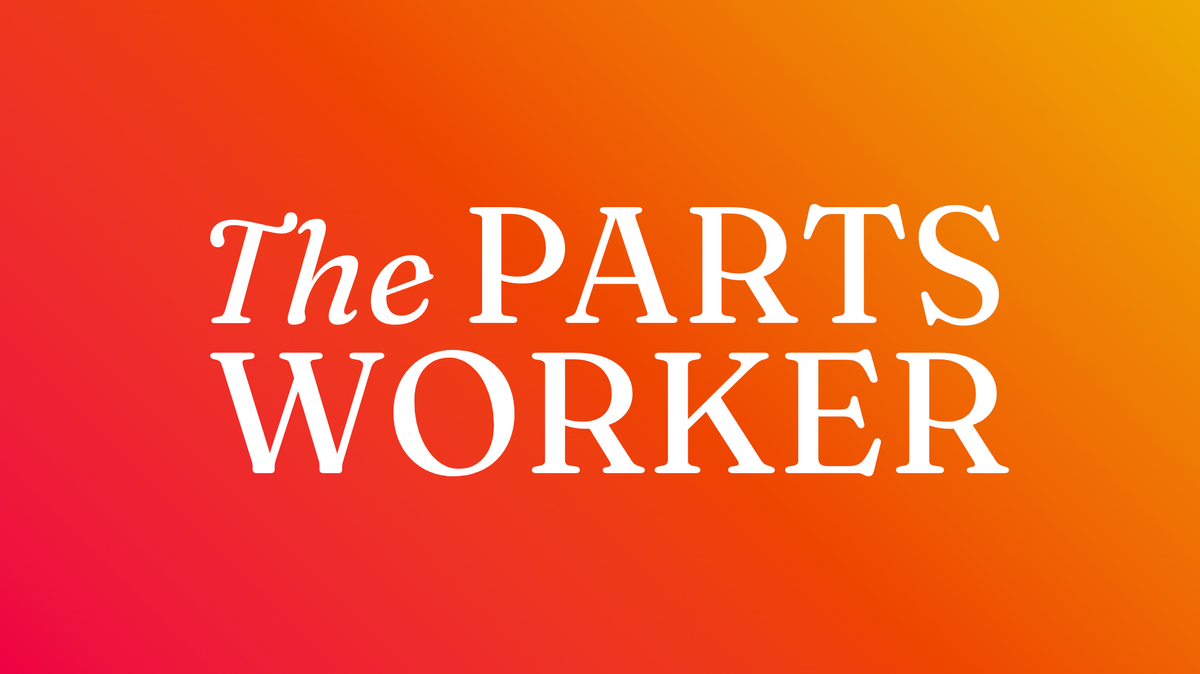
TL;DR: Welcome from Ash | A report from the Unconference | Building a directory of partsworkers | Free peer-to-peer partswork + other resources
Welcome
Here’s a question: What do you call those of us who, knowing that the individual human psyche is naturally plural, deliberately interact with the many inhabitants of minds in order to relieve suffering and liberate potential?
These days, particularly in places where western-style psychology is the dominant way to think about healing, people who fit that description are usually Internal Family Systems practitioners, as I am myself. But the healing we do through IFS, and the model of human plurality that lets us do it, unite us in fellowship with many other inner workers, from Jungian analysts to shamans to co-ops of Plural systems. So what do you call all of us together, this whole community of workers who interact with the many parts of human systems to help us all heal and get free?
Some of us have taken to calling ourselves, simply, partsworkers. Not an elegant word, perhaps, but it’ll work well enough until we think up a better name for ourselves. I think the word we choose for ourselves matters less than the recognition that what we have in common has the dignity of something worth naming.
As all of us know from vivid personal experience, something powerful happens when a bunch of apparent strangers (or even enemies) realize that they are actually the members of a community, united by a common purpose too deep to deny. Perhaps warily at first, they start getting to know each other. They learn each other’s histories and values, their various strengths and quirks. They help each other heal, make amends for past wrongs, and learn how to support each other. They put their heads together to solve common problems. They are more powerful, more free, and more joyful together than they ever could have been alone.
So what might become possible if everyone who works with parts to liberate and heal — every partsworker of every kind — recognized each other as members of the same community? What might we do if, bound together in a shared understanding of human nature and healing, we came together in harmonious collective action?
This newsletter, The Partsworker, aims to help us all find out.
So welcome, friends! Read on, share this message with any partsworker you know (send ’em to partsworker.com). And write back, whenever you want, with tips, reports, ideas, and invitations.
In community,
Ash Chudgar,
Partsworker
Report from the June 2024 Parts Work Unconference: Reuniting global IFS + partsworker solidarity
At seventh global Parts Work Unconference on June 1, 2024, IFS practitioners Pau Wojnar and Alessandro Pedori convened about 200 “IFS enthusiasts” from around the world to talk together about whatever we wanted to. Alongside fascinating conversations about psychedelics, parenting, and finger puppets, many of us were eager to talk about the IFS Institute’s abrupt decision to restrict its official training to licensed clinicians. “We were hoping to offer a space for some of that to happen,” Alex and Pau wrote ahead of time, “and it looks like it will.”
Did it ever! Several dozen of us talked about how to respond to the IFSI’s sudden change of course across two intersecting conversations: one about reuniting the IFS community, another about imagining partswork beyond IFS.
- Reuniting the IFS community: JJ Stamatelos, who organized the petition and Declaration of Oneness at self-led.org, led me and dozens of others in a two-part conversation called “Beyond the Petition.” We talked about how to make the most of the excitement the petition has aroused among IFS enthusiasts who believe in a future where the model is available to all, far beyond the institutional boundaries of clinical mental healthcare.
- Partswork beyond IFS: Many of the same folks, including JJ, joined me to imagine what solidarity among partsworkers might be like outside IFS entirely. What could we accomplish outside the IFS umbrella that we couldn’t accomplish in it?
The conversations we had in these sessions revealed some common themes, some new questions, and many opportunities to experiment together. Here’s a quick summary of what I learned.
Our thoughts on the IFS Institute™
The sessions JJ led started out focused on our responses to the IFS Institute’s decision to restrict Level 1 training to licensed clinicians. Here’s what I got from that part of the conversation:
- IFSI leaders are unlikely to change course. While many of us feel deeply committed to the IFS model itself, I didn’t hear much hope that IFSI leaders would meaningfully retreat from their hard pivot toward institutional mental healthcare. Non-clinical practitioners seem likely continue to be second-class citizens in the world of Institute-approved IFS for the foreseeable future. (I agree on this point.)
- Level 1 training: not so great anyway! We talked a lot about how Institute’s Level 1 training, as expensive and exclusive as it is, really doesn’t do that great a job of teaching people how to do partswork. People particularly noted how most Level 1 training diminishes or even ignores crucial features of real human systems — particularly unattached burdens, legacy material, and cultural context overall.
- Partswork is open-source technology. We seemed to agree that the fundamental principles that underlie the IFS model — parts, Self, burdens and unburdening, and so forth — are ancient, globally distributed, and therefore entirely un-ownable by the Institute™ or anybody else. In this respect, the IFS model is just a very recent contribution to the ongoing “open-source” project of partswork.
Four benefits of not being a clinician
Now that the IFS Institute has emphatically elevated licensed clinicians above other practitioners, is there anything positive that unites partsworkers who operate outside the mental health system? When I asked at the Unconference, four answers emerged quickly:
- Diversity of methods. Although we all identified as “IFS enthusiasts” in one way or another, non-clinicians reported that we draw enthusiastically on other models of human multiplicity in our practices: Voice Dialogue, psychosynthesis, Vedanta, ancestry work, tulpamancy, and more. This diversity of theoretical and practical traditions can help us work more skillfully and flexibly.
- Freedom from the medical model. Conceived and stewarded by American clinicians in the late 20th century, the IFS model can’t help but bear the burdens of the American health finance system: defensive credentialism and lawsuit-avoidance, an insurance-driven obsession with diagnosis and “evidence,” and a fat price tag on everything from training to credentialing to therapy itself. Most non-clinicians (and maybe clinicians trained in less oppressive medical cultures) simply never got those burdens handed to us — which lets us practice with greater ease and comfort, and share what we know more generously.
- Community orientation. Modern medical psychology tends to treat people in isolation from their social and political contexts. Non-clinical practitioners, by contrast, seem more inclined conceptualize people within larger social systems, like economic structures, power relations, and cultural lineages. Our orientation to human multiplicity at many scales seems to attune non-clinicans to the complex social and political realities of our work — like the desperate need for access to partswork among low-income people.
- Expertise from personal experience. Above all, non-clinical partsworkers reported that we learned partswork within ourselves, and only later learned how to help others work with their parts. We observed that many clinicians seem to learn IFS like any other “therapeutic modality,” without much or any exploration of their own inner worlds. Non-clinicians, by contrast, seem to end up as partsworkers because of the healing and liberation partswork made possible in our own lives. When we offer hope to our clients, we do so from personal experience, and we practice what we preach.
What’s next
My parts and I left the Parts Work Unconference feeling happier about the future of the healing work we love than we had in months. We’re connected to a global community of partsworkers on Pau and Alex’s Telegram channel, and we have many ideas for things to do together.
Speaking of which …
Project: Building a directory of partsworkers
Folks at the Unconference had lots of ideas for things to do next, but one quickly emerged as a project with real energy behind it: creating an independent directory of partsworkers, for and by our community, to offer a robust, diverse, and anti-corporate alternative to the IFS Institute’s walled garden.
- Ongoing conversation. Lots of folks at the Unconference were excited about the directory idea, and a few of us have been talking about it since, including me, Siobhan Bale (who wrote this amazing essay about partswork with dogs), and Pau and Alex of the IFS Collective.
- Resources we have now. Siobhan, knows about a wide range of IFS training programs, has sketched out a draft membership policy. I have ideas about how we might make collective governance work, the technical platforms we might use, and how we might communicate about the directory. And of course Pau and Alex are experts at activating and organizing partsworkers from around the world.
- What we want to happen next. As Siobhan put it, we want to convene “a collaboration of folk willing to give time and expertise” so we can create “a holistic and well rounded framework” for the directory. And here’s where you might come in …
How you and your system can help
If you have the time and energy to help us create this new directory, we’d love to hear from you. Consider this a special invitation to parts of you who have expertise or enthusiasm about:
- co-op governance, participatory democracy, horizontal decision-making
- federated online communities
- open-source software for managing and displaying data
- legal or regulatory issues around mental health and peer support
Interested? Just reply to this message and say so, and I’ll keep you in the conversation.
Resources: Free peer-to-peer IFS + more
- IFS Peers, at ifspeers.com, is “a community-led, IFS-based peer support organisation offering online meetings focused on healing from addiction and trauma.” They offer virtual meetings several times a week and have support spaces on Facebook and WhatsApp, all free to participate in.
- Free(ing) IFS is a private Facebook group where partsworkers can share free, donation-based, or low-cost resources and training. This is another project of Siobhan’s.
- The Integral Guide to Well-Being, at integralguide.com, is an encyclopedic open wiki that synthesizes all the learning that helped a partsworker named Levi heal from trauma. It’s a remarkable resource, free to everyone.
That’s all for this first edition of The Partsworker, friends. Write back if you’re so inclined, and please forward this email anyone who might be interested. We’re just getting started.


